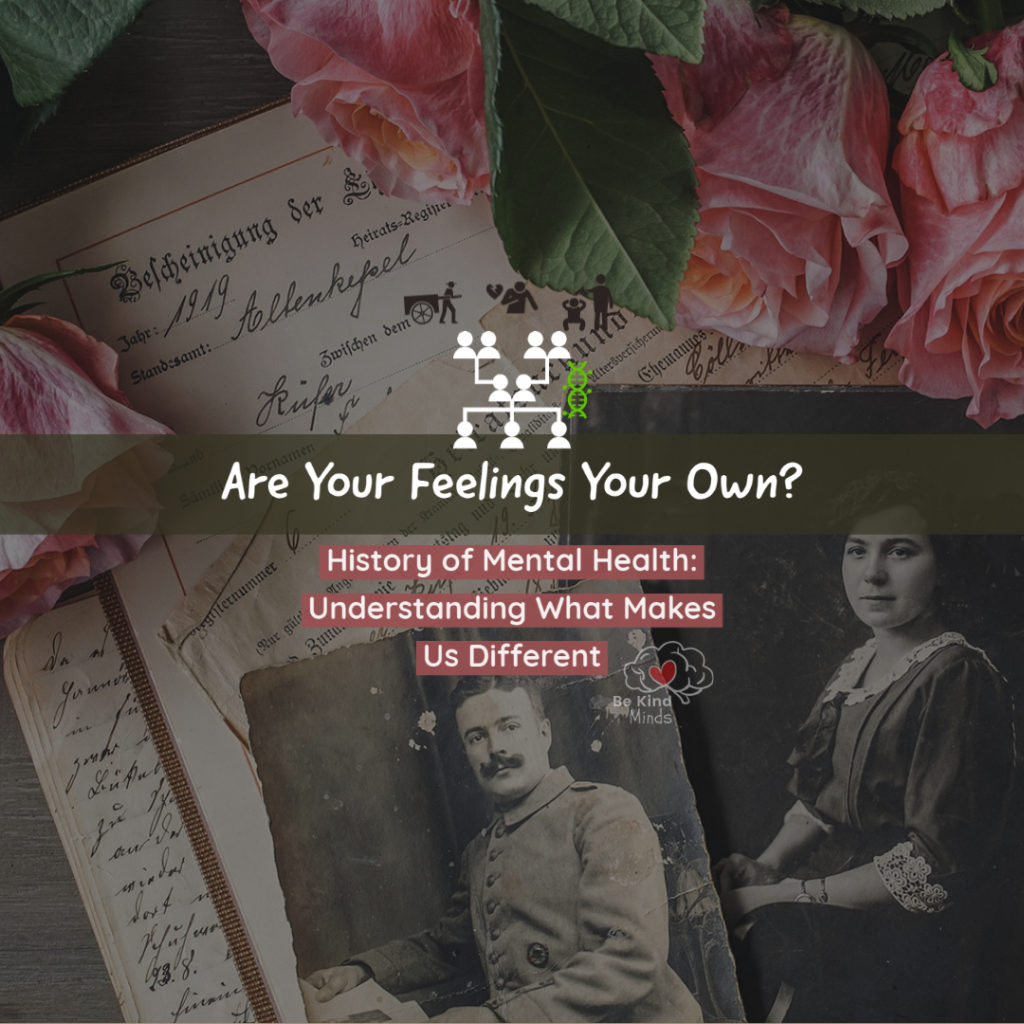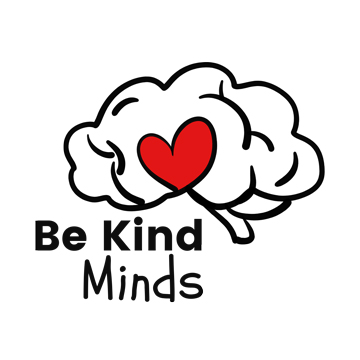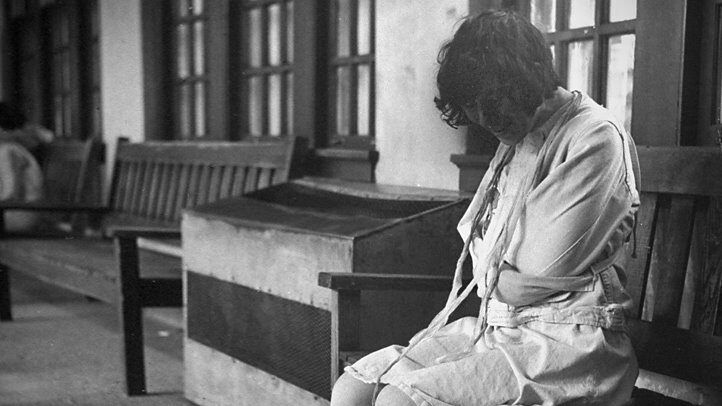How many times have we had that sudden chill come over us as we sit in a crowded room full of laughter… as we add our own smiles & laughter to the room, we encounter this odd sensation of self-awareness noticing that everyone else appears to be having a good time, but your internal feelings are not matching how you sense that you should feel. This laughter, this smile you’re wearing… should produce a feeling of happiness… right?

This feeling lingers into the next week as you try to shake it off. You make a mental list of things that we all know should work to make those heavy feelings go away. You eat healthier, exercise more… you journal, you make lunch dates with friends, you become active in your community, you spend time with loved ones, etc…
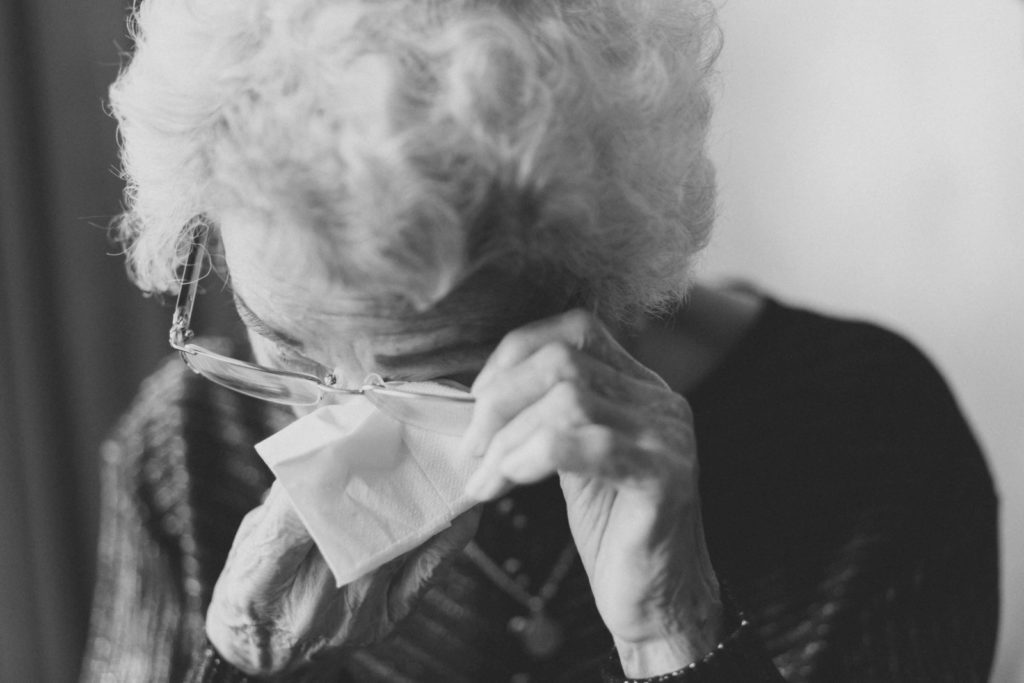
It’s been weeks and these emotions keep showing up. You’re now sitting with your doctor and confess what feels like a shameful thing to admit… “I feel like I’ve tried everything, but these feelings won’t go away. Why? What am I doing wrong?” Your doctor looks at you with compassion in their eyes. The question they ask you next is a very important question,
“Do you have a family history of mental illness?”…
It’s not always easy for everyone to find those connections in their family history. You may have been adopted, lived in foster care, or your family ancestry is filled with empty boxes… meaning they may have been inconsistent in record-keeping or records have been lost, which makes it challenging to understand the behaviors written about people we’re related to, and diagnosed health conditions our grandparents were given. Not to mention that it wasn’t until 1883, that a German psychiatrist (Emil Krapelin) published his research on comprehensive systems of psychological disorders that centered around a pattern of symptoms… it was then that mental health only just started to be taken seriously.
Much of our family history in the early 20th century and older will be guesswork as most people ‘stuffed’ their feelings and tried their best to ignore the behaviors and symptoms because there was a very real threat of being sent away to live permanently in a mental institution. It was life-threatening to admit that your mind was unwell, so family members may have been written out of family history, not spoken about, or briefly mentioned… or written accounts would strictly focus on only the positive. It’s no wonder that this underlying feeling of threat lingers within each of us even well into the 21st century, where it’s hard to admit that something may be wrong with the way our brain functions.
It’s important to first understand that equally true to our not being our mental health diagnosis, it is true that we are not our parents or grandparents. We own our own identity, and we have our own life experiences that influence our mind and body. But our mental health (our brain health condition) does influence how we feel and behave, and also true is what our parents, grandparents, and their parents before them – their life experiences influence much of how, and why we behave the way we do. The term for this is called ‘Epigenetics‘. It is a big topic I’ll go deeper into in a future article, but I want to keep this introduction more simple to understand, and why it’s important to understand.
“A new field of genetics called epigenetics shows that our habits and emotions can impact our biology so deeply it actually causes changes in the genes that are transmitted to the next several generations. This means the stress associated with mental health challenges in your parents, grandparents, or great-grandparents actually altered your genes to become more susceptible to trouble. In addition, if your ancestors ate poor diets, were exposed to environmental toxins, lived with chronic stress, or didn’t get eat healthy prenatal nutrition, it changed their genes—and subsequently, yours—to be more likely to express mental health problems.”
– Dr. Daniel Amen – “5 Ways Your Family History Affects Your Mental Health“
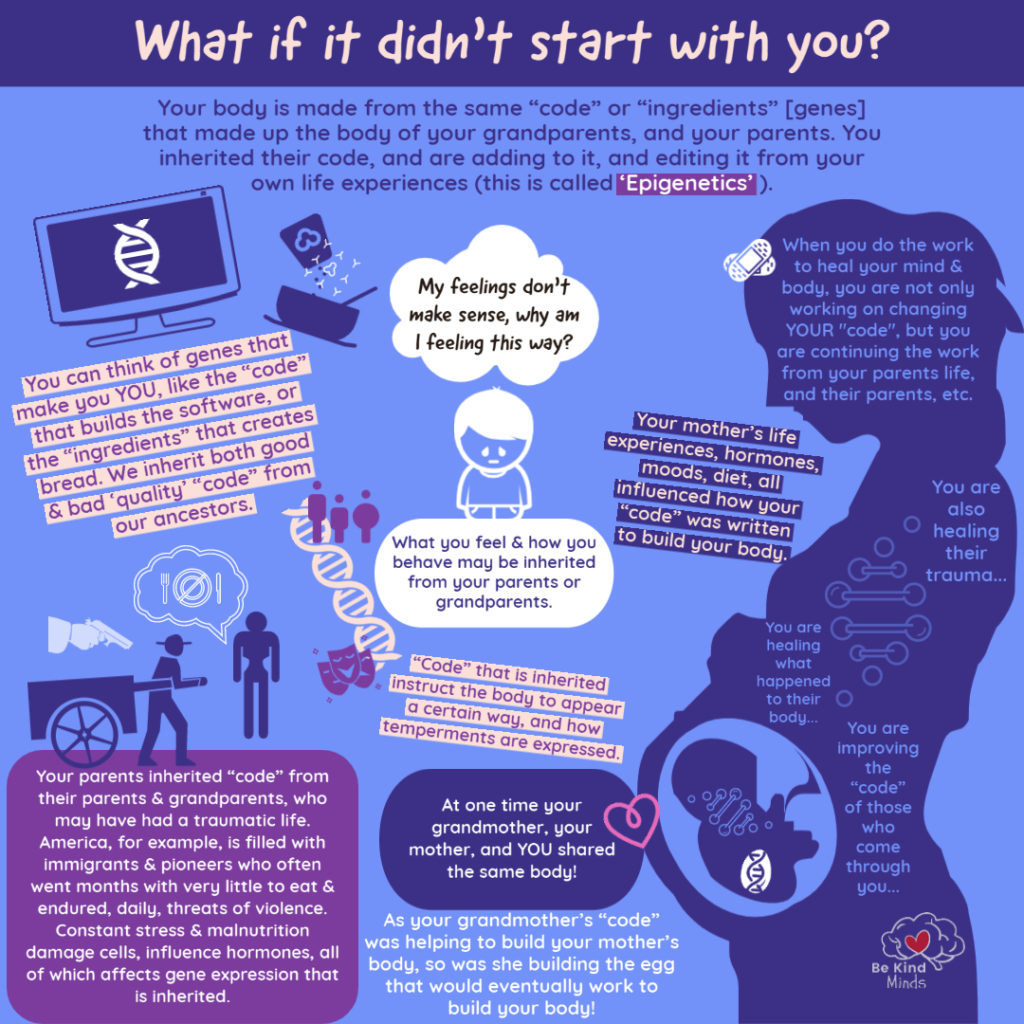
The Healing Power of “I can relate…” in Connection With Family
There is a very real sense of healing as we learn the ‘why’ behind the feelings we experience in our day-to-day life. When I first approached family research, it was out of curiosity to learn about the people who came before me. This past year, I have dug into family research with a new intention… to learn the basic building blocks of the behaviors, the genes (or “code”) that created this physical body I live in, and the physical body that created my husband so that I may come to understand him better too.
“Through a process called epigenetics, you can inherit your ancestor’s fears, worries, or even prejudices without ever being aware of it. The anxiety or trauma is written in your genetic code.
– Dr. Daniel Amen – “Meet the Ancestral Dragons That Haunt Generations“
For example, children and grandchildren of Holocaust survivors have a higher risk of anxiety disorders and PTSD, as do children of 9/11 survivors and those who had parents who served in Iraq or Afghanistan. In addition, anyone who has lived in a war zone experienced the early death of a loved one, or lost someone to suicide may have their brains so deeply affected it can change the nature of their genes to impact their offspring for generations”
Keeping in mind my two diagnoses of Bipolar Disorder & ADHD (both are genetic)… you might consider quickly reviewing over those lists of symptoms before reading on, but here is a quick review of some (not all) combined symptoms that would be easier to identify in written accounts of someone’s character, thoughts, and behavior, or their own personal account:
- Pressured speech… they appear to be overwhelmed when trying to explain something – like there is mental pressure & the words don’t come out clearly (this will be easier to identify if you’re listening to audio recordings)…
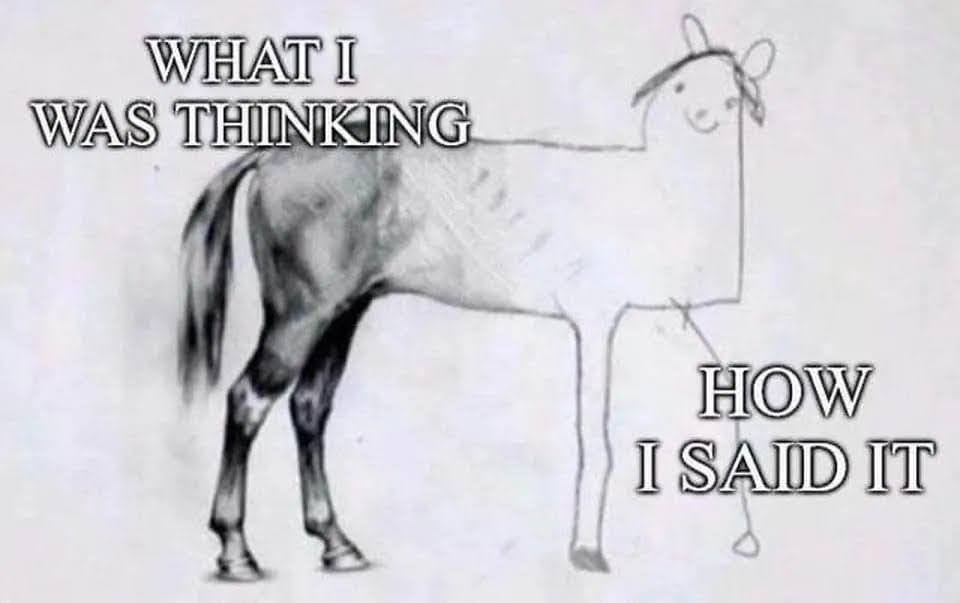
- Exaggerated sense of well-being & self-confidence, inflated self-esteem…
- Unusual talkativeness (long-winded, when speaking out loud or writing down thoughts)…
- Racing thoughts (often will jump from one subject to another “oh, that reminds me of…”, scattered thoughts, thoughts collide & can become confused)…
- Extreme impatience, easily triggered to anger…
- Very challenging to deal/manage stress…
- Difficulty sticking to tasks that are tedious, time-consuming, or not interesting…
- Difficulty organizing/prioritizing tasks, difficulty keeping organized with personal spaces/work spaces, thoughts…
- Constantly changing activity/tasks…
- Appear to be unable to listen or carry out instructions…
- Little or no sense of danger, seemingly unworried about personal safety..
- Compulsive when in regards to subject matters that are interesting, can easily become obsessed / all consumed…
- Poor decision-making /impulsive— i.e. going on buying sprees, creating multiple businesses at a time, starting another project before finishing others, etc…
- Often will speak out thoughts before thinking through the consequences of their delivery… can be very opinionated… could offend others with unfiltered speech…
- Paranoid, anxious, excessive worrying…
- ODD (defined by negative disruptive behavior, particularly towards authority figures…)
- OCD (condition that causes obsessive thoughts & compulsive behavior; e.g. hoarding, or excessive cleanliness)…
- RSD (rejection sensitive dysphoria – extreme emotional sensitivity & a very real physical pain due to perceived or actual rejection, teasing, or criticism)…
- Marked loss of interest or feeling no pleasure in all, or almost all activities…
- Feelings of worthlessness or excessive or inappropriate guilt…
I began reviewing family history records on FamilySearch.org for stories written about my ancestors (you can find stories, documents, and images in the ‘Memories‘ section of each profile); their behavior, personal interests, and key characteristics that I felt I could relate to.
Because it’s impossible to truly know, it’s just guesswork to see where I may have inherited my own interests, behaviors, and personality traits… I’ll share some of the highlights from entries I found that have stood out to me in my research so far…
*Please Note: This could at times feel like or seem like you’re being overly critical & judging your ancestors… this is not at all the intent. The intent is to simply identify thoughts, interests, and behavioral patterns you can personally relate to & how often they show up as you research (did their parents have similar behaviors & interests?), not necessarily to diagnose a family member but to gather behavioral patterns you can share with your doctors as you’re seeking help for your mental health, or seeking help for a loved one you live with. The further back you go, the less likely you’ll come across honest accounts that truly depict someone’s complete character, as often was the case, they focused more heavily on the positive (also, Mental Health wasn’t a thing, so describing someone’s character was done in more general terms, as assumed as normal)…
“I Can & I Will” Mentality, A Strong Mind…
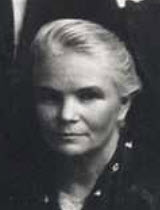
Great-Grandmother Henriette …
In the autobiography of my grandfather, he writes about his mother:
“…my mother knew so much about common sense things to do when anyone would get hurt. One day I knelt down on a rusty nail and pulled it out… My mother was there with me… she put her mouth over this little hole in the skin and sucked the stuff out… she explained that she was going to get the rust out and whatever there was of poison so I wouldn’t get lockjaw. How my mother knew that I don’t know, and I’ll never know. Mom could do anything. She played the organ, she sang, and she could draw. She was very religious. She was devoted to her husband and family.”
Not yet found in a written document, it has been passed down through family story-telling that my great-grandmother was an outspoken advocate for her religious beliefs, often to an extreme. She would show up to social events adorned with pins symbolizing her beliefs.
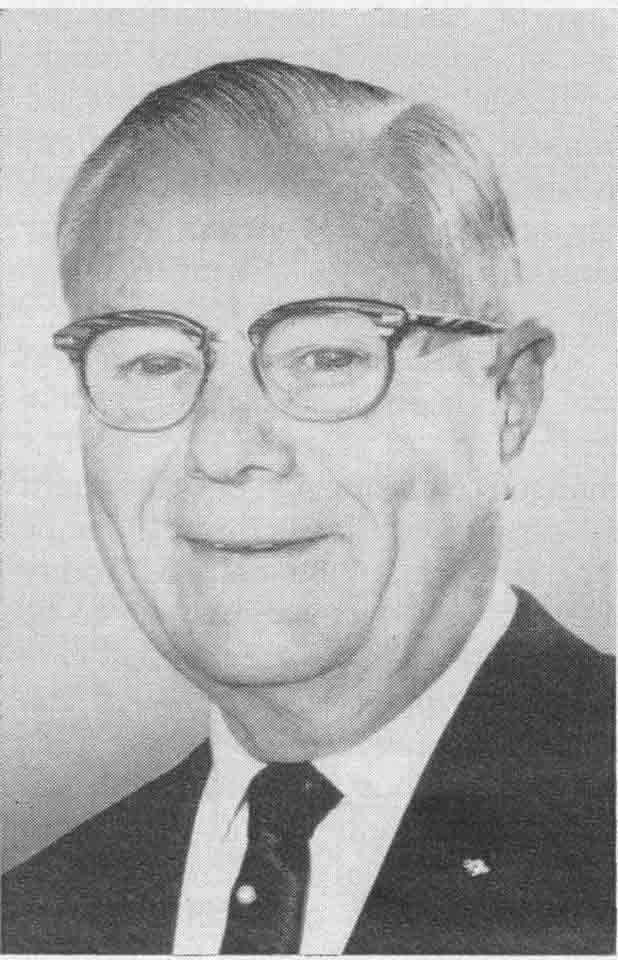
Grandpa “Bornie”
Referring to his work as President of the American Medical Association, giving speeches & writing editorials…
“The press were very cordial and very understanding. Maybe i looked naive and they felt sorry for me. Maybe the bit of briefing had convinced them of the problems of the underserved people. Whatever it was, they were not abrasive. If someone were to ask me why AMA had said in 1936 we had too many doctors, I would tell them that lots of things have changed since then and today there is a great need in many places for more medical help…Almost always I had some opinionated material, or suggestions on how to improve medical care by some change… I enjoyed writing a speech…much of the editorial comment in the daily papers has been critical of the AMA. I therefore felt highly complimented when editorials appeared, not only favorable toward the AMA, but mentioning me by name and giving me credit for leading the Association in a new and meaningful direction… there were many news stories, all favorable but I valued the editorials above the reporters’ version. These editorials… gave me the courage to pursue the topic of providing medical care, the same level of care for everyone.“
>> Continue reading other family history finds below or click here to skip to last section of article…
Great-Great Grandmother Sarah Ann :
I shall always remember Grandmother Sarah, for the immaculate house she kept. The hours she sat and quietly rocked in her rocking chair, twisting the wide gold wedding band on her finger, just thinking. The stiff starched bonnets she always wore out in the sun. The snowy white chemise and drawers of muslin, trimmed in lace, she always wore. Never did I see her soiled or her house work not done, seldom did I see her doing the cleaning. I think she must have done it very early in the morning.
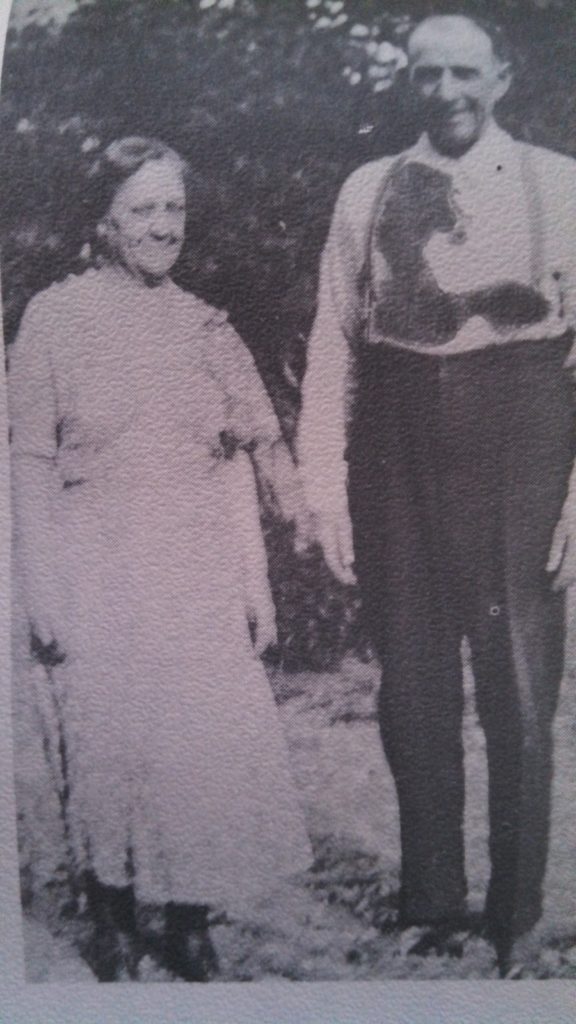
Great-Grandma “Carrie” :
Her eyes were bright and searching… They expressed what she felt and thought, and left no doubt. Clearly audible describes what I observed about her voice… With it she commanded the attention of those with whom she communicated. She used no slang, or vulgar words to give vent to her feelings, or emphasis to her conversation.
I remember watching her drive the well trained animal hitched to the one seat buggy… she was always alone, when I saw her. I am sure there were times when one or more of her children accompanied her… I was fascinated by the meticulous way she cared for herself, her clothing, and the wraps she used.
…She had no trouble making a decision. She always weighed the value of the item, if it seemed worth the quoted price she did not quibble, she paid for it, and was pleased... She would listen to suggestions from me, but courteously refrain from accepting them if she felt they were not justified or helpful… I learned from… her that she was a woman of strong will, capable of making decisions that required restraint, and good judgment.
…I learned that to have a friend one has to be a friend. She exemplified this truth. Carrie believed that the right hand need not know what the left hand did. In ways that only she knew of it was a source of satisfaction, to assist her family members.
Self-Awareness

Grandpa “Bornie”:
Referring to his grades at Northwestern University Medical School…
“I did well in math and physics and in biology. I don’t think I did too well in English and literature. It was pretty hard to understand some of those writers who wrote things like, “Il Pensoroso.” The professor would ask us what we understood by reading this poem, what it made us feel like. He asked me and I told him, “That stuff kind of puts me to sleep.” He didn’t like that very well, so I didn’t get a very good grade in English.”
Referring to critics of his academic publications…
“There was some criticism of things that I said… But many in the academic community agreed with me and said so. This I appreciated and of course, I saw the point of view of those who disagreed. To be sure, my recommendations were not always clear…”
Referring to his political beliefs & how they influenced his work as President of the AMA…
“I never was an ultra-conservative or even moderate. I tried to think ahead and long ago decided not to be a defender of the past. My address to the house of delegates in December 1970 was entitled “Shapers of the Future” and the concluding sentence was “Let’s not be protectors of the past, let’s be shapers of the future.” I once told one of our very conservative members who was always dragging his feet, that if he needed to go off on a tangent, he should cease going off to the rear, but go off in a forward direction. As much as possible, in everything that I said and did, I tried to remember that someone, someday might show me an ancient statement and ask me if I still supported the idea. As it turned out, I’ve seldom been called upon to eat words that were ten years old. I am certain that the American Medical Association benefitted from the years that I spent learning how to be its President.
I certainly did not keep still for fear of being in trouble. I spoke out on the issues as I saw them and was not popular with the Councils or Committees whose plans of the present or for the future, I had criticized. In such instances, I tried to be sure that the public would be better served if my suggestions would be followed.”
Creative Artists

Grandpa “Bornie”
He wrote a complete autobiography at the age of 72 with multiple addendums thereafter. In total sum, the complete work adds up to ~200pages. In addition to his detailed account of his life, he has countless published articles in medical journals anyone can easily find today online, as well as published letters to high-ranking government officials. Much like an artist uses paint to illustrate their thoughts and feelings, my grandfather used words to illustrate his wishes for what he’d like to see as a new “shape of the future”. As stated multiple times in his biography, he felt it important that his words be shared so that family history may be recorded, and that he might possibly make a difference in the medical world, that his influence might inspire others in a forward progressing way rather than fall backward.
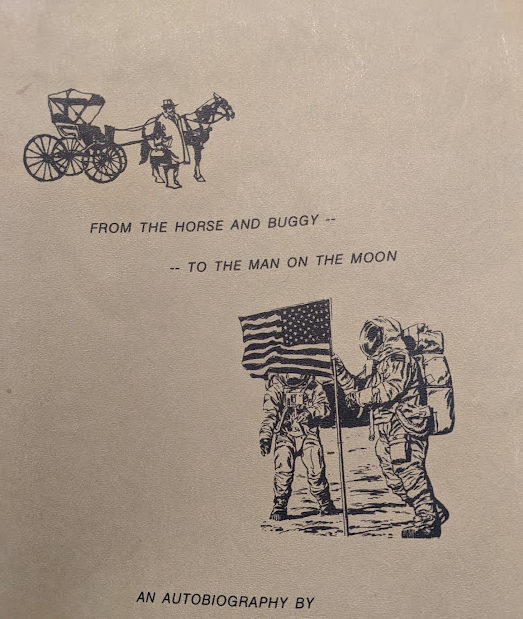
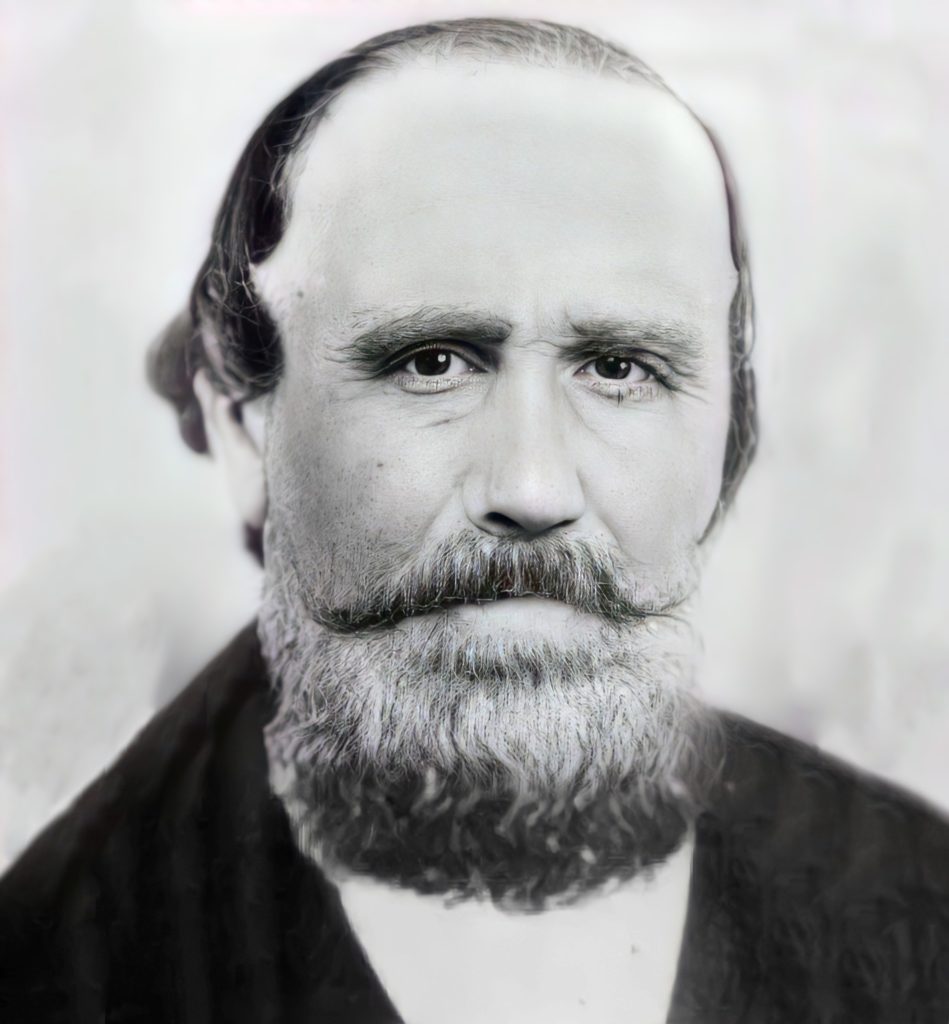
Ebenezer (my great-great-great-grandfather) :
“he was Deputy Sheriff and did his duties faithfully and fearlessly. He was also an Attorney at Law and had a very good education… He played the violin and fiddled for dances. He had a joyful disposition and joined in with the young folks and was leader in their amusements.”
Great-Great Grandfather Hyrum Sylvester (son of Ebenezer):
Sylvester played his violin at the dances… a hardworking, ambitious man, never idle. He was much loved for his jovial personality and friendly ways.

Great-Grandma “Carrie” :
She was an expert at remodeling. She had a gift of knowing how to fashion an up to date style dress or coat from either new or used material. .. Carrie could create unusual things with the use of her sewing machine and a pair of scissors, a little thread, and a great amount of self-confidence… Carrie could [also] do painting on fabric…. Quilts by the dozens she made from pieced blocks cut from swatches of fabric and washed denim she saved over the years… No little girl in her family was ever short of a handmade wrap for her doll…
talent in communication…Great-Grandpa Hiram (son of Hyrum, who was a son of Ebenezer, husband to Great-Grandma “Carrie”):
He was a unique person, in many ways. Hiram, a well built, physically strong, quiet man was a visible symbol of peace… I felt safe to go where his presence was honored and respected… The only one I shall cite to suit my purpose is he never seemed to be the cause of trouble, but always able to quell it, and help those affected by it to a state of calmness without them becoming resentful.
Traumatic Losses & Hardship
Many of my ancestors experienced persecution, witnessed countless deaths & brutal attacks, and lived most of their lives in constant threat and malnutrition (often going weeks & months with little to no food). While immigrating across Country from Europe, Germany, & Scandinavia (Denmark mostly), they had children, infants, spouses, parents, extended family, and friends die throughout their journey. They were buried at sea, and along the trails when wagons would pause briefly to allow for the dead to be buried & they carried on. To say that they were under unbearable stress, grief, & anxiety is an understatement. All of which plays a role in their, and their posterity’s mental health…
Great-Great-Great-Great Grandpa Josiah :
“We who are blessed heirs of these stalwart pioneers should keep in mind that it was difficult to tame the wilderness, build homes, and earn enough to feed and clothe a family without enemies attacking from every side.”

Josiah’s & Lowly’s son, … Ebenezer (my great-great-great-grandfather):
serving as a bodyguard… 1838 “…sent with another man to Haun’s Mill to rescue… and bury the dead. He was shot through the chest, the bullet passing through and lodging just under the skin of his back. His companion cut it out with a knife and he rode home and recovered rapidly… forced by the mob to cross the Mississippi River…There was some that stopped until summer but they fared very hard for they had trouble and some were killed. We crossed the river on ice, the snow was about a foot deep and we camped about seven miles out on the stream… We made shanties of brush and blankets and wagons were our homes. We were then in the barren Indian country, uninhabited and to the mercy of the [Indians], but to us (at) the time (they) were more merciful than the whites… It would be impossible to describe the suffering and hardships we had to pass through the few weeks there. Snow, rain, mud, I never knew what it was to sleep in a dry bed. I would take my shoes and stockings off and wash the mud off and put them on again… The winter tried [our] patience even more. Huddled in tents and drafty cabins [we] seldom had enough food or fuel, while a plague that spread among [us] carried no less than 600 to their graves before Spring.”
Recorded entry of Ebenezer’s journal…
While out on an assigned mission in Africa… “Friday August the 7 This being my birthday 42 years old and eight thousand miles from my home I felt well but lonesome I could not relish the curiosity although there was everything to please the eye of the traveler but I would rather have been home with my family than to have owned all that I see and heard it at my command and live here at night we went to the theater did not relish it I was homesick Bro Kay was very kind to me and did all that he could it did not make any difference to me. I then went home to where I boarded…”
In Glasgow UK… “Monday Aug the 31 …. If I could forget home I should enjoy myself with the saints much better than I do the saints are trying to do all they can to get away from here…I shall be glad when the time comes that I can come home and live with my family and friends once more I had rather be at home and live on bread and water than to stay here and have all my heart could wish for here I have a plenty to eat and wear and money in my pocket they don’t live here as they do in the valley you would be surprised to see the wickedness in this country they will believe ten lies to one truth…”
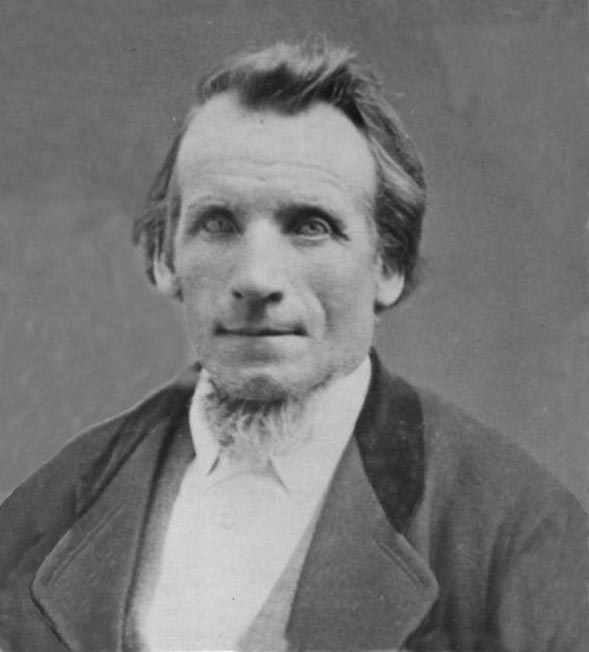
Great-Great- Great Grandfather Jens:
October of 1854. “The only meat eaten that winter came from animals that had frozen or starved to death. In the early spring, people found sego lilies and a few wild tomatoes. For months many had nothing else to eat. Those fortunate enough to have a little flour, made a thickening to put over the boiled segos. Others ate them raw.”
Jens and his family, spent their first winter in dugouts. “The men dug cellars in the ground and covered them with roofs made of poles, willows and dirt. Small openings were left in the makeshift roofs for light and for fireplace chimneys. These dugouts provided immediate shelter until more permanent log houses could be built over the cellars”
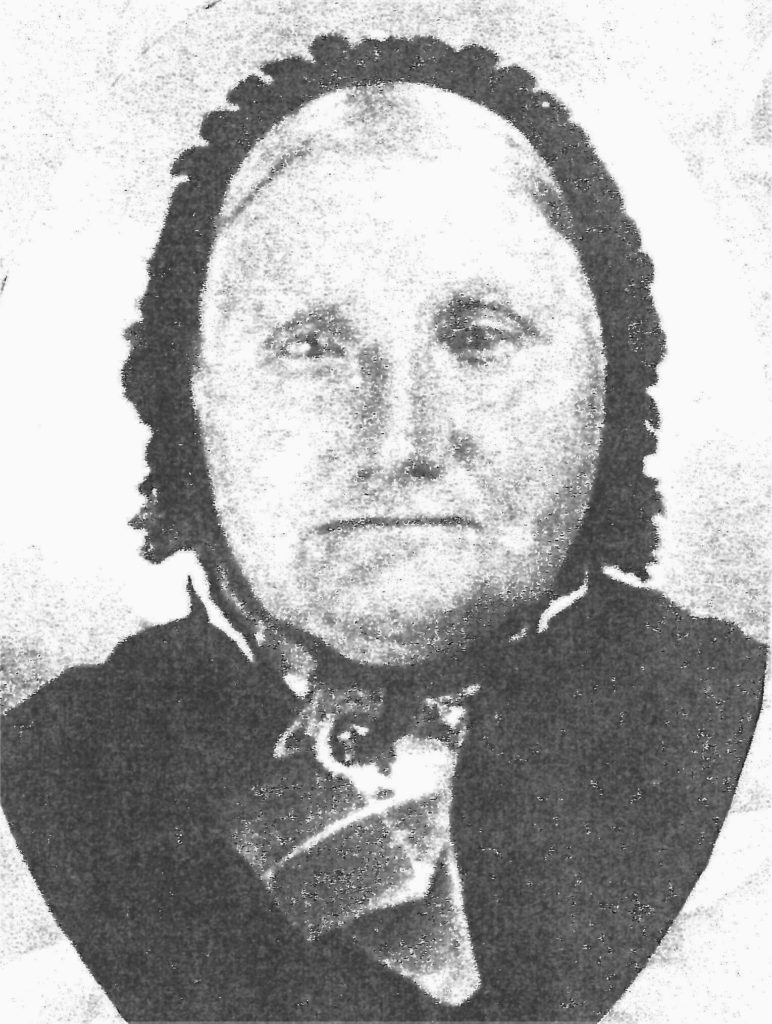
Great-Great-Great Grandmother Maren :
Grandmother was a frail little woman but she did more than her share of the work…Grandmother wove a beautiful rag carpet. The rags were real fine and woven into such a lot of bright colored warp. She put clean straw on the floor and laid the carpet stretched tight and nailed to the floor all around by each wall. This room was used just for company…
The youngest, a girl died when she was 15 years old, and another girl died and left her husband and four small children. This was a great sorrow for grandmother. Her health failed and she was never well again. Grandfather had a lady… come and do house work. She did the job well but did not want any help from grandmother. So grandmother just let her take over. Her married children did all they could to make life pleasant for her.
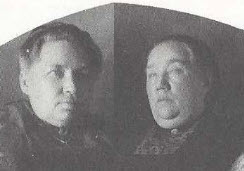
Great-Great-Aunts, twins, “Annie” & “Dorie” (sisters to Great-Great-Grandma Karen Marie):
Annie was a twin to Dora and a very close companion. They had opportunities to marry but preferred the single life… When [Mr.] Winsor picked her up to go to Pipe Springs or Winsor Castle to work, she traveled alone with him in the wagon. When they stopped for the night, she slept at the back of the wagon box and he in the front. He was a perfect gentleman, but she could not sleep a wink all night, was curled up in a tight little ball all night long.
They owed about $100 to the Perpetual Immigration Fund. Annie paid for herself and part for her sister Dora and for the sister, Birthe who died on the plains. I think this is a demonstration of a very sterling and honest character.
Confirmed Medical Diagnosis…
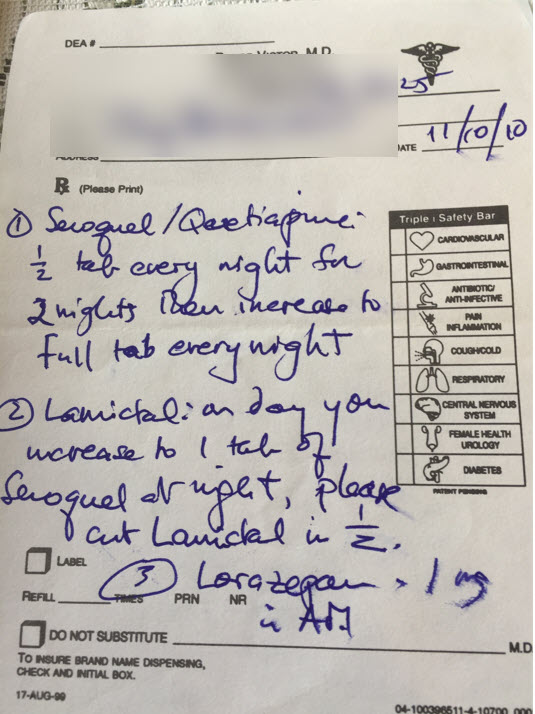
The only tangible confirmed diagnosis I have discovered of a family member (aside from nephews I know of diagnosed with ADHD & Autism, and a few great-uncles & second cousins who had taken their own life)… To respect the privacy of close loved ones, I won’t reveal any details or a name, but after a close loved one of mine passed away, while going through their personal items we found multiple written prescriptions for medications used to treat Bipolar Disorder… also confirmed after contacting their psychiatrist… while this person had been open to me about their diagnosis, they kept private to most everyone else about it. This is a good example of it being helpful for other family members to know of any and all medical diagnosis, especially those that are genetic, so they can get the proper help earlier than later if they are experiencing symptoms as well (it’s much harder to heal the longer your mental health condition goes untreated, especially if you start self-medicating with substances like alcohol or other risks of addictions to cope)…
I’ve only just begun my journey in researching my family. Fortunately, I have a family history filled with active writers, which only reminds me how important it is for this new generation in my family to have records left by me to help understand themselves better, as we share the same “coding”. Epigenetics isn’t a life sentence, it is information that we can use to better understand ourselves, and have information in hand to learn how to improve the code that lives inside us. First, you need to understand the code, before you can understand how to modify it. Then ask yourself,
“Is this anxiety I’m experiencing my own? Or are these emotions those that I have inherited?”
The healing comes from understanding the origin of the behavior.
What If I Can’t Find Any Stories In My Family History?
Another way to benefit from history is to find stories of significant figures in history that share similar behaviors and personality traits. If I didn’t have the information about my family history, I would focus more on historical figures like Leonardo da Vinci, who was famously obsessed with both Art & Science, often beginning many projects & had to be dragged into completing commissioned works (i.e. ‘The Last Supper’).
I also closely relate to Vincent van Gogh, who has been posthumously diagnosed with “Manic Depression” (now referred to as Bipolar Disorder)… mostly struggling with long bouts of depression which ultimately took his life.
“If I could have worked without this accursed disease, what things I might have done,”
– Vincent van Gogh
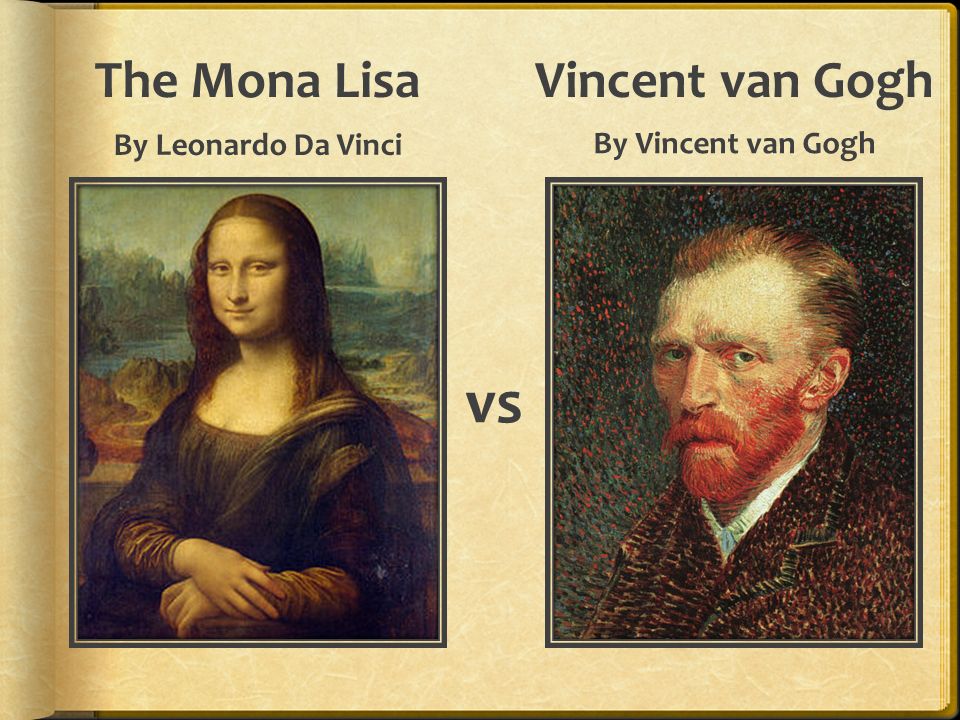
Both men were, and still are admired for their works of art and considered persons of great interest for their unique minds… but at the time they were alive, often were looked upon in society & within their community as difficult to understand, difficult to work with, a challenge to have a relationship with, and overall ‘unwell’. They in their own ways struggled with a stigma and used their creative outlets to cope with life. They had overactive minds that demanded an outlet, a voice to ‘get it all out’, because it physically overwhelmed them to contain it all.
“Thus far, we have seen that manic depressive disorder and schizophrenia are both significantly more prevalent in artists than in the rest of population.”
– Adrienne Sussman, Neurologist, Stanford University
So while everyone appreciated what they could create as an artist & inventor, very rarely were they ever met with a genuine understanding for how they were feeling privately. I often wonder if they struggled with overwhelming insecurity in obsessive thinking about how others felt they were ‘enough’… if what they were creating, was ‘enough’? Little could they know how their legacy would reach minds young and old for generations, inspiring creative minds, and providing a blanket of comfort I can only imagine they wished for while they were alive. Just imagine how they would feel to be reminded, and reassured often by people close to them, “Vincent, you are enough. Everything you are doing, right now, is enough. Thank you for being alive. Thank you, for being here – even on the hard days, I am so grateful you’re here. I appreciate you.”
It proves the point that none of us could possibly know or understand how our seemingly “simple” touch upon the world can influence the lives of countless people who can relate to what we create, and what words we’re willing to share.
If you found this article helpful, please feel free to share it with friends & family, to encourage them to keep a record for their posterity to learn more about them. It is important and will be helpful to many who seek to better understand the “code” that has built the body they live in. 🙂
